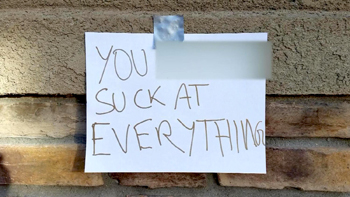Panic gripped big tech firms like Facebook and Twitter which decided to close their offices from Seattle to London as more employees tested positive for the new coronavirus.
Facebook shut its three London offices till Monday after an employee was diagnosed with COVID-19.
The social networking giant told nearly 3,000 employees in London to work from home after an employee, who is based in Singapore but visited the London offices between February 24-26, was diagnosed with the new coronavirus, Sky News reported on Friday.
"An employee based in our Singapore office who has been diagnosed with COVID-19 visited our London offices on February 24-26.
"We are therefore closing our London offices until Monday for deep cleaning and employees are working from home until then," the company said in a statement.
There have been 163 cases of coronavirus so far in the UK.
Earlier, Facebook recommended all its Bay Area employees in the US to work from home. The latest precautions come after San Francisco announced its first two coronavirus cases on Thursday.
Facebook has also shut its Seattle office until Monday after one of its contractors was confirmed to be infected with the virus. The infected contractor last visited the Facebook office on February 21. King County health officials said all Facebook sites should work from home until March 31.
Twitter shut its Seattle office for a 'deep clean' after an employee developed COVID-19 like symptoms though final result was still awaited.
"A Seattle-based employee has been advised by doctor about likely COVID-19, though still awaiting the final testing," Twitter said in a tweet on Friday.
"While the employee has not been at a Twitter office for several weeks and hasn't been in contact w/others, we're closing our Seattle office to deep clean," the company added.
According to The Seattle Times, at least 14 people have died due to COVID-19 in Washington State till date.
Amazon, Microsoft, Google and Facebook have advised their employees in Washington State to work from home.
Apple has reportedly suggested its employees at California campuses to work from home as an "extra precaution" while new coronavirus cases spread on the west coast in the US, especially Seattle area.
Apple's flagship developers' conference WWDC 2020 in June is also at the risk of getting cancelled as the Santa Clara public health department has warned against large public gatherings. The event draws nearly 5,000 developers from across the world.
The US death toll from the new coronavirus has climbed to 14, according to Johns Hopkins' tracker, with 329 cases reported across the country.
 The Federal Bureau of Investigation (FBI) is probing into the case which came to light on February 6.
The Federal Bureau of Investigation (FBI) is probing into the case which came to light on February 6.




Comments
To those who tell Indians or any \brown\" complexioned people to give up their dreams of settling in the US, I say we have every right to be here and are not going to run away because to do so will mean these domestic terrorists will win. There is a phrase you can die a thousand deaths every day by living in fear, or you can walk with your heads held up high. The choice is yours.
Enough is enough."
Indians should give up idea of settling in US....they can utilize their ability to develop India....
All these are because of most wanted hate monger Trump. He is a mess in US. No peace will regturn to US unless this hate monger is kicked out of US. He is not worth to be called as a human being. Indians are staying in US, working for the development of US economy and being respected till date. However, this hate issue is started ever since Trump jumped n politics. Many Indians had supported Trump and now they are feeling sorry for it.
Add new comment